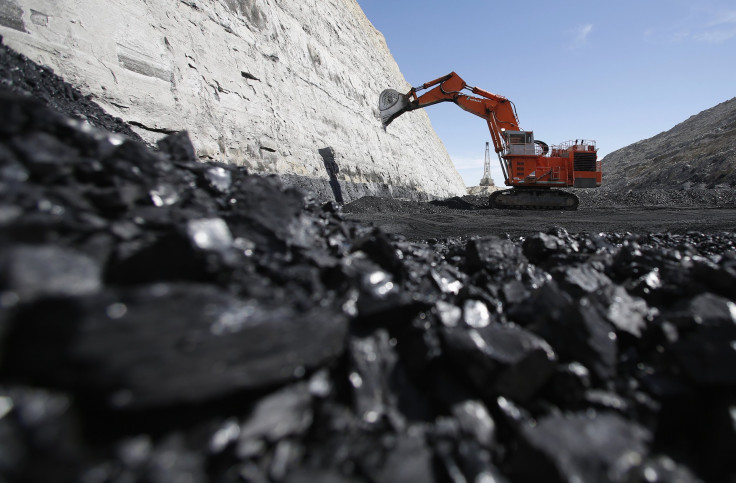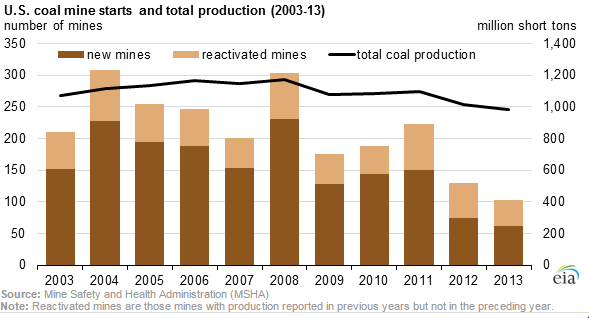US Coal Mines Continue To Dwindle As Weak Demand Takes A Toll

The number of operating coal mines in the United States has hit a record low, as use of natural gas rises across the country. According to a report released Wednesday by the U.S. Energy Information Administration (EIA), just over 1,000 coal mines were operating in the country in 2013 -- the most recent year for which data is available -- down from more than 1,400 in 2008, when coal production was at its highest.
Moreover, with an increasing number of coal companies going bankrupt, the number of new and reactivated coal mines that began production in 2013 fell to the lowest level in a decade. Companies opened 103 new mines in 2013, while 271 were idled or closed -- resulting in a 14 percent decline in the total number of active mines between 2012 and 2013.

“The declining number of new mines reflects reduced investment in the coal industry, strong competition from natural gas, stagnant electricity demand, a weak coal export market, and regulatory and permitting challenges,” the EIA said in the report.
According to the U.S. Environmental Protection Agency, electricity production -- mostly using coal and natural gas -- accounts for 31 percent of domestic greenhouse gas emissions. Globally, coal-fired plants are the single-largest source of carbon dioxide emissions.
As a result, the Barack Obama-led administration’s Clean Power Plant has called for a 32 percent reduction in carbon emissions from power plants using fossil fuels by 2030 -- an initiative that is likely to hit coal-fired plants the hardest.
However, the decline in the number of new coal mines opened in 2013 pre-dates the Clean Power Plan, which was finalized in August. According to a recent report by the London-based Carbon Tracker Initiative, since 2009, 26 American coal mining companies have shut shop, as cheaper alternatives such as shale gas, and a decline in global demand -- especially in China -- make coal uncompetitive.
“We’ve known for decades that coal posed serious health and environmental risks, but now coal has also become an investment risk as countries take serious actions to clear their air and protect the climate,” Andrew Logan, director of the oil and gas program at Ceres, a Boston-based nonprofit sustainability organization, said in a statement in March. “Investors have been pushing for coal and other fossil fuel companies to face facts and adapt their business models to thrive in a carbon-constrained world.”
© Copyright IBTimes 2024. All rights reserved.





















